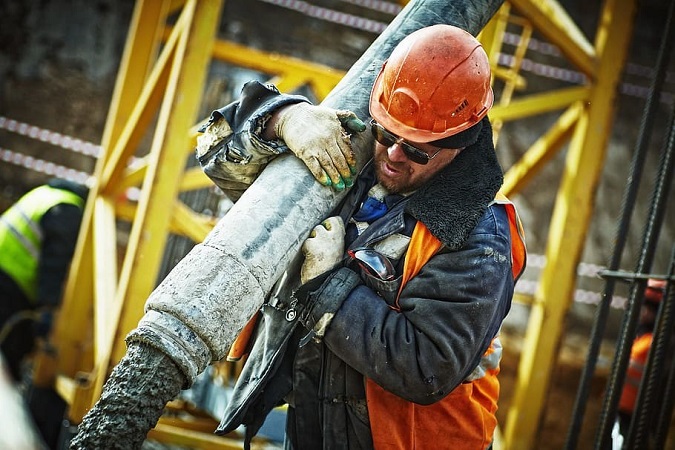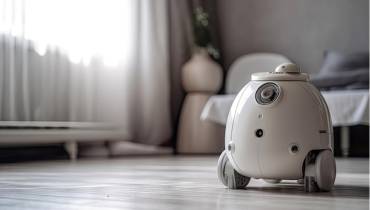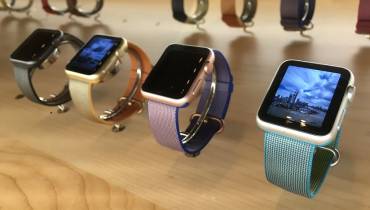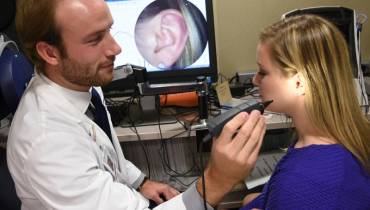The Riskiest Jobs for Your Health

Health in the workplace has never been more important, particularly in the wake of infectious diseases sweeping across the globe.
Unfortunately, there are several ways that our jobs and workplaces can compromise and jeopardise our health. For example, workplaces can put you into direct contact with loads of people, making it easier for you to catch infectious diseases, including COVID.
Other jobs can be physically taxing, such as where you have to lift heavy items. And even if a job requires minimal physical effort, it can still leave you little time for rest and rejuvenation.
Worst Jobs for Health
Some of the jobs that take the biggest toll on people's mental and physical health (in no particular order) you should probably avoid or try to mitigate the risks to your health as much as possible include:
1. Retail Workers

This may be a surprising addition to the list of worst jobs for your health, especially compared to more physical jobs like construction or mining. However, it is in fact one of the most stressful jobs out there. A quick search on WebMD reveals a plethora of physical health issues associated with the profession, such as stomach pains, high blood pressure, etc.
This is corroborated by this study of 65,000 female workers by the American Heart Association that studied links between poor heart health and occupation. It showed that retail cashiers working in shops were 33% more likely to have poor cardiovascular health.
Another NPR study showed that retail workers were 26% more likely to attribute their emotional stress to their job. It was conducted by Professor Robert. J. Blendon at the Chan School of Public Health, who polled 1,601 American workers about their job.
Retail workers also have a people-facing job, which means they are constantly in contact with huge numbers of people daily. This makes it ideal for transmission of diseases like the flu, bacteria and viruses like coronavirus.
2. Social Care Workers

Social care workers sometimes face extremely challenging situations, and many vulnerable individuals depend on them to resolve these situations. Their decisions and work can make or break someone else’s life. Undoubtedly, this places immense pressure on the social workers themselves.
In this same study of 65,000 female workers, social care workers were the most likely to suffer from heart problems (36% more likely). This is unsurprising, as we saw earlier how high stress levels impact physical health. Stress can lead to higher blood pressures, which in turn worsens heart health.
Like retail workers, they are constantly in contact with people from all backgrounds. Combined with the high stress levels (which can weaken the immune system), they are susceptible to catching infectious diseases.
3. Construction workers

Construction work also finds its way into our list of worst jobs for your health. It is not only mentally taxing, but also physically grueling, with plenty of room for injuries.
Construction workers face a wide range of serious ergonomic issues on the job site, from vibrating tools, heavy loads to poor safety oversight.
Physical injuries, back injuries in particular, take a huge toll on our economy due to absentee days. Back injuries cost almost 264 million work days a year, and Americans spend $50 billion on treating it.
Occupations like construction work are much more prone to back injuries than others. For physical laborers, almost 40% of musculoskeletal injuries were back injuries, according to the U.S. Bureau of Labor Statistics.
In the NPR study, it is also one of the top jobs where workers report the most negative impact on their health (23% workers).
4. Nurses

It is no secret that medical and healthcare professionals experience intense pressures, both physically and mentally. It’s worse for them because they can’t afford to burn out, since other people’s lives depend on them. In the NPR study previously mentioned, the medical field had the fourth highest percentage of workers attributing their stress to their work (19%).
Their physical health isn’t much better. According to the AHA study, women in healthcare roles such as nurses or nursing assistants were 16% more likely to have poor heart health. Out of all the musculoskeletal injuries experienced by nursing assistants, almost 50% of them were down to back injuries.
Not only do they experience physical health problems directly related to their work, but their work stress and odd working hours leaves them little room to pursue good eating and sleeping habits. According to a 2012 study by the Journal of Nursing Administration, 55% of nurses were found to be overweight. The odd shift hours makes it harder to get regular sleep, which itself leads to a variety of additional health issues.
This brings us to the most salient risk to nurses- infectious diseases. The recent escalation of the coronavirus pandemic highlighted how healthcare workers are one of the most vulnerable.
Many nurses have died in their efforts in treating coronavirus patients, even with the best medical protection equipment. According to a 2015 study from the World Health Organization, the risk of ebola infection in healthcare workers was 32 times higher than that for the ordinary person.
In Conclusion
Physical and mental stress in jobs lead to many different health problems. In some jobs, like nursing, there is little you can do about high stress levels. The best approach in such cases is to mitigate the health risks as much as possible and ensure you don’t slack on healthy eating, exercise, and getting enough quality sleep. Not doing can lead to even more health problems.





















